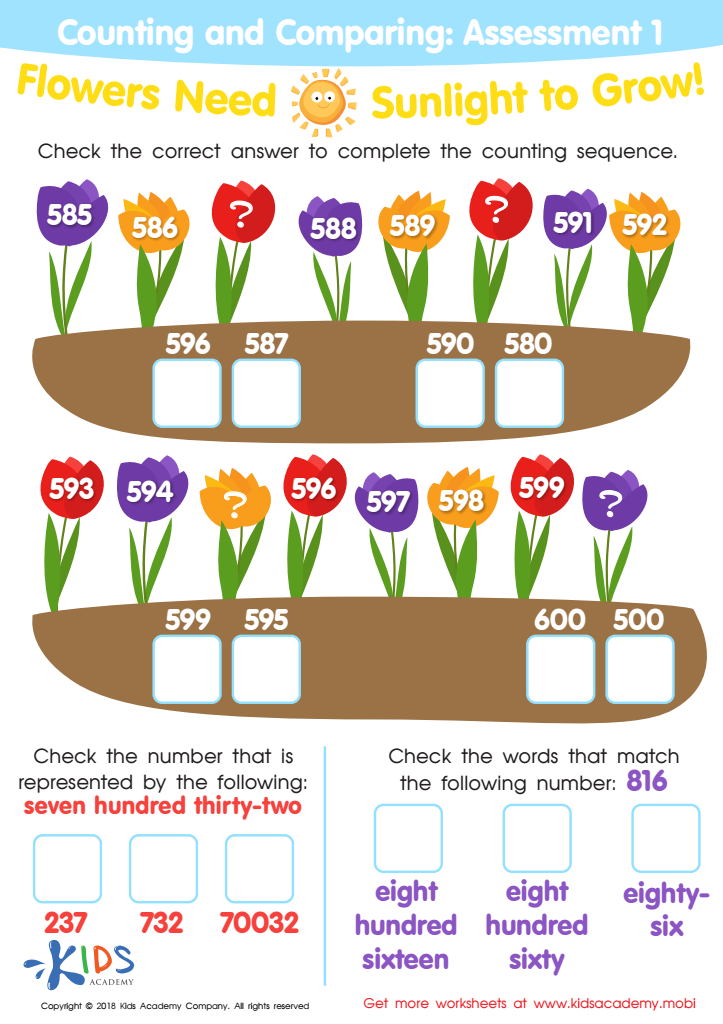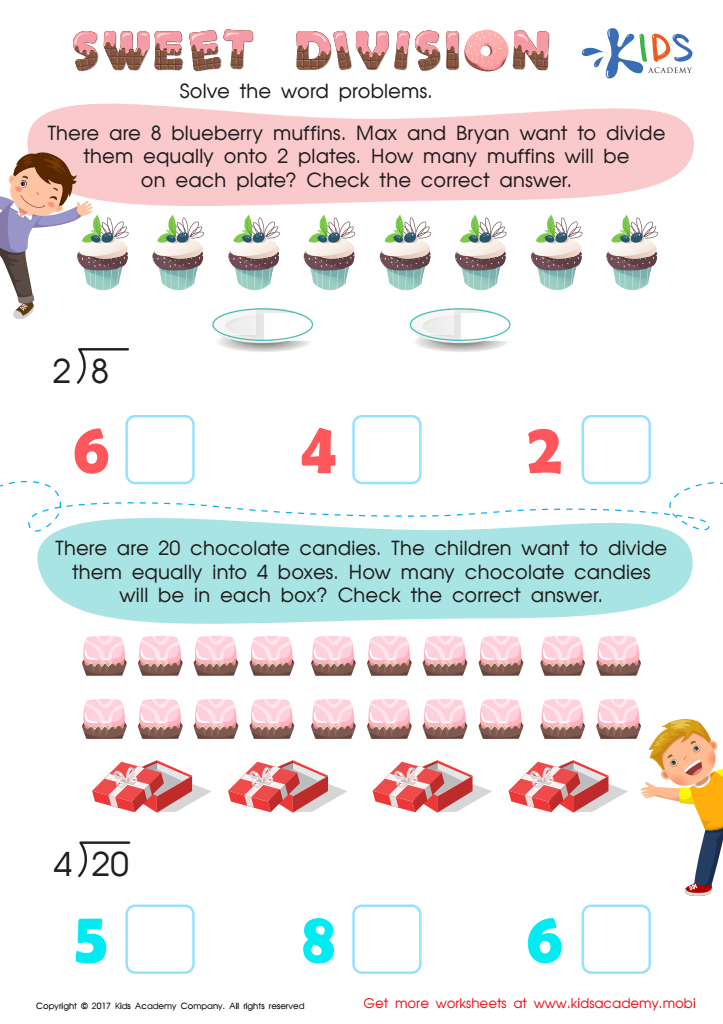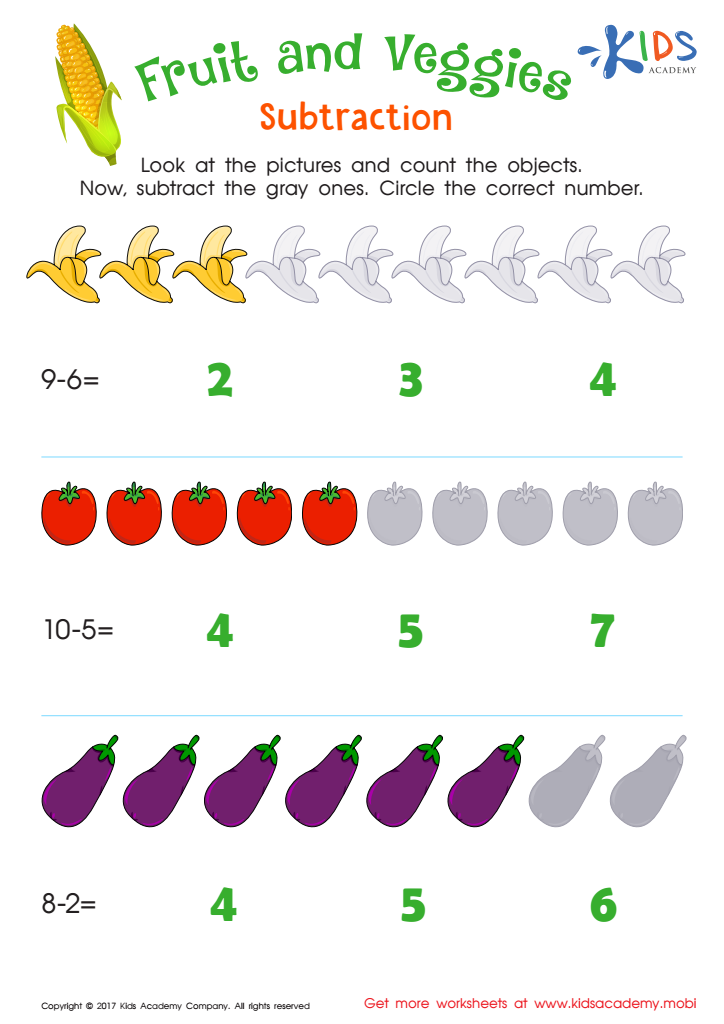Word problem solving Worksheets for Ages 6-9
3 filtered results
-
From - To
Unlock your child's potential with our engaging Word Problem Solving Worksheets for ages 6-9! These worksheets are designed to enhance critical thinking and mathematical skills through fun and relatable scenarios. Each activity encourages problem-solving as children practice addition, subtraction, multiplication, and division in real-life contexts. Download and print our expertly crafted sheets to provide your child with plenty of opportunities to explore different strategies and develop confidence in math. Ideal for homeschooling, classroom activities, or extra practice at home, these worksheets make learning enjoyable while building a strong foundation for future academic success. Empower your young learner today!


Counting and Comparing: Assessment 1 Worksheet


Division Word Problems Worksheet


Fruit and Veggies Subtraction Worksheet
Word problem solving is a crucial skill for children aged 6-9, and both parents and teachers should prioritize it for several reasons. First, it enhances critical thinking and comprehension skills. When students tackle word problems, they must read carefully, determine the relevant information, and think logically to solve the problem. This process builds a strong foundation for analytical thinking, which is essential not only in mathematics but also in life skills.
Second, word problems promote real-world applications of math. Children learn to connect abstract mathematical concepts to everyday situations, making math more relatable and enjoyable. This relevance can boost their confidence and interest in the subject.
Additionally, word problem solving encourages effective communication skills. Students learn to articulate their thought processes and reasoning, which is vital for collaborative learning and future academic success.
Finally, nurturing a child's ability to solve word problems can help address the disparities in math skills that may arise during this formative stage. By helping children become proficient in word problems, parents and teachers contribute to a comprehensive educational foundation that fosters resilience, creativity, and a lifelong love for learning. Thus, prioritizing this skill is beneficial for children’s academic journey.
 Assign to My Students
Assign to My Students














